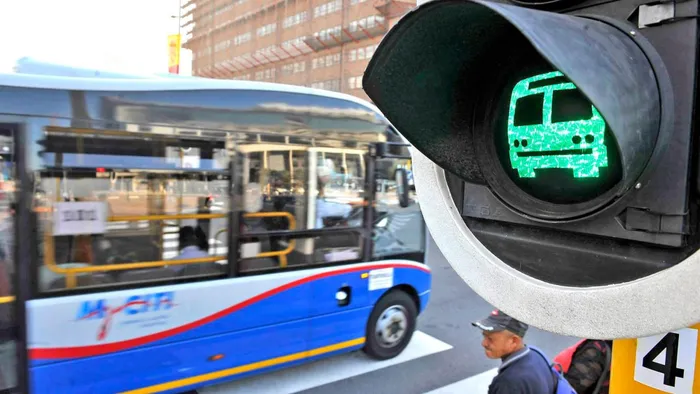Business Forum ready to fight extortion claims

MyCiTi
Image: File
THE Philippi Business Forum has distanced itself from the City’s claims that it was responsible for derailing the MyCiTi construction project along Govan Mbeki Road in Philippi through extortion.
The City recently confirmed having secured an interim interdict against alleged extortionists after officials and the contractor’s staff received death threats and were verbally intimidated.
The Philippi Business Forum and Crossroads Business Forum were cited as respondents in the application. The City said both failed to present their answering affidavits to the Western Cape High Court concerning why the order should not be made permanent.
“Self-proclaimed ‘activists’ within the Philippi Business Forum, Crossroads Business Forum and other affiliated entities had engaged in intimidation, threats, and blatant misinformation campaigns in their shameless efforts to dictate how and to whom employment opportunities are awarded.
“There are lawful and transparent processes available to local businesses and residents from the affected wards to apply for the available opportunities that form part of this construction project.
“Those who have been involved in the intimidation, death threats, and other disruptive tactics are well aware of these processes as they have been briefed at numerous public information days and during other engagements. There is only one way to benefit from the available opportunities at any City project and that is by following the legal and transparent route. This route ensures equal access to all. We will not deviate from it,” said Urban Mobility mayco member Rob Quintas.
He said the interdict does not prevent anyone from participating in the project.
“It only stops those who are trying to hijack it through threats, violence and sabotage. The City continues to encourage all eligible businesses to submit their profiles via the clearly marked boxes at the Subcouncil Offices.”
Philippi Business Forum member Lonwabo Matshisi denied the allegations.
“It is not true. They (contractors) want to do the work on their own and take the money given by the municipality. They did the same thing during the last project. Everywhere they go, they accuse the SMMEs. We are just looking for an opportunity to grow. We never did what they’re claiming. They just took pictures of our cars and formed a story, saying we were involved in extortion.
"That’s false. Our cars were stopped and searched for guns. There were no guns. We’ve never stopped any project, we just want them to come and meet with us. We’ve sent several emails and tried calling them. We asked them (the main contractor) to come and sit with us, to make a presentation. They never came. Meanwhile, we’ve followed every step we’re supposed to take,” Matshisi said.
He said they had just recently found out the City received an interdict against them.
“They just made accusations. On Tuesday, we hired an advocate. We never did what they’re claiming. They (the contractor) are working on-site. They promised our community jobs but delivered nothing. That’s why the community is also upset,” Matshisi said.
Attempts to contact the Crossroads Business Forum were unsuccessful.
The Building Industry Bargaining Council (BIBC) said the country’s construction sector was being “systematically undermined” by criminal syndicates. The impact has been severe, including forced stoppages and heightened security requirements which have led to significant project delays and cost overruns.
“These criminal networks are not simply disruptive, they’re deeply embedded in some areas and operate with increasing sophistication,” said Danie Hattingh, spokesperson for business at the BIBC.
The council explained that the “construction mafia” initially emerged around 2015, “often misrepresented as attempts at economic transformation. Exploiting clauses in procurement policy, particularly the requirement that 30% of public contracts benefit local communities, these groups claimed to represent local interests”.
According to the BIBC, contractors, workers, and even government officials have reported intimidation, assaults, and in some cases, killings. Armed gangs have stormed construction sites demanding a cut of the project (usually 30%, under the false interpretation of local empowerment policies).
“What began as calls for inclusion quickly devolved into extortion and violence. We have seen armed site invasions, demands for ‘protection fees,’ sabotage of equipment, and even threats to life. These are not empowerment activists. These are criminal syndicates exploiting legitimate policies for personal gain,” Hattingh said.
“The construction mafia exploits every gap. They scare and threaten without facing any punishment or consequences, manipulate the tender process, and operate freely due to legal delays and poor coordination between stakeholders.”
Cape Times